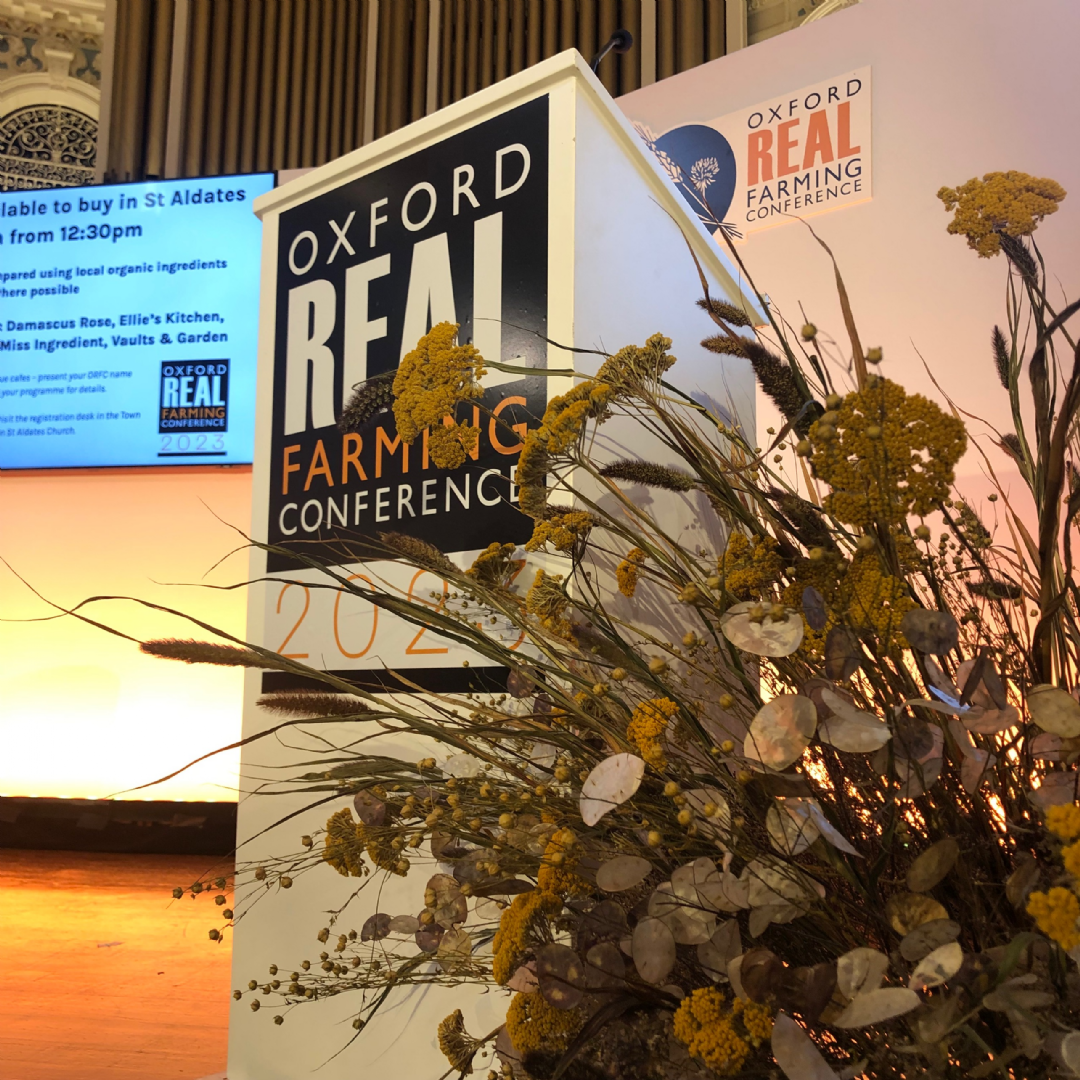
After two years online, the Oxford Real Farming Conference (ORFC) returned beating with excitement in 2023. The conference takes place in Oxford at the same time as the longer-running Oxford Farming Conference, so both events bring farmers into the city from far and wide.
From the get-go, the ORFC explored global culture and environmental challenges, without shying away from the difficult issues.
During the event, speakers and delegates from 130 countries reported barriers to sustainable land management, social equality and policy inclusion. However, by the end of the conference it was clear that the network of 1,800 in-person delegates and a further 2,500 online attendees had created a think-tank of solutions to take home and deliver.
On the fringes of Oxford Town Hall, many discussions were undertaken. These included hearing about the importance and inclusion of dung beetles, carabids and beneficial insects as part of integrated pest management. Experiences of drought resilience were shared between indigenous Maya-Achi farmer Alfredo Cortez, from Guatemala and indigenous organic farmer Gerald Miles, from Pembrokeshire, Wales. This was an excellent example of knowledge exchange between farmers - both farmers work within polarised systems, both understood the importance of biology on their farms, and both were minimising activities that disrupt or degrade soil biology, structure or integrity.
The ORFC also coincided with the timely publication of two major reports, which were the subject of many discussions among delegates.
- The UK Climate Change Committee (CCC) report, Agroecology - A rapid evidence review, summarises that agroecological practices have the capacity to reach net zero goals while maintaining short term yields at 90%, increasing biodiversity, soil quality, animal welfare and other co-benefits
- The Sustainable Food Trust report, Feeding Britain from the Ground Up, outlines the importance of UK agriculture transitioning towards regenerative and sustainable practices. It concludes that this transition has the capacity to maintain UK food security and increase public health by delivering nutrient dense food products
UK food security and improving self-sufficiency, particularly of vegetable products, were major concerns highlighted at the ORFC. Currently, the direction of agricultural transition seems to be directed by private investment, market demands and public interest, without much mention of agriculture within policy agendas. Speakers alluded to the frustration which comes with trying to engage policy makers to deliver a food strategy with public nutrition at its heart. For example, Oli Rodker from the Landworkers’ Alliance highlighted how political inaction and lack of political leverage is slowing progressive change.
A key take home message from ORFC was that agriculture should be at the centre of rural policy decisions, and that farmers and growers need to work together to mobilise this change. IfA are currently running a project – the Agricultural Immersion Centre – which is bringing UK farmers together with policy stakeholders to solve specific farming challenges. Projects such as this will be vital to ensure farmers’ voices are heard in policy settings.
Top quotes from the ORFC
- “Food is a unique resource where you can make an impacting change, three times a day,” Dr Vandana Shiva of Navdanya International
- “If we don’t have green cover – we are not taking advantage of the sunshine, which is free energy,” Matthew Izod of Priory Farm, Lyneham
- “As our future depends on the land, so does it depend on real farmers,” Satish Kumar of Schumacher College




